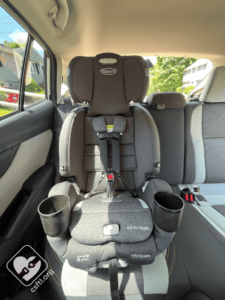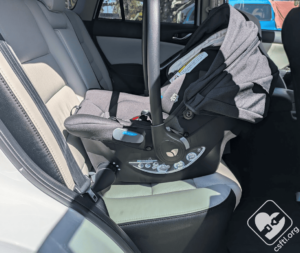The Waymo Utility Pole Crash
Waymo vs. utility pole smackdown: the utility pole won. No apparent extenuating circumstances.
Nobody was injured; the vehicle was empty. The pole suffered a minor dent but is still in service.
This video has an interview with the passenger who was waiting for pickup in Phoenix: https://www.youtube.com/watch?v=HAZP-RNSr0s Waymo did not provide a comment for the story.
Now the Waymo utility pole safety recall report is out (https://static.nhtsa.gov/odi/rcl/2024/RCLRPT-24E049-1733.PDF). Interesting that the vehicle was executing a pullover maneuver at the time it hit the pole. From a validation point of view I’ll bet it could go down the center of the alleyway just fine in normal driving, but what bit them was the combination of pulling to the side of the road and a pole happening to be in what the vehicle thought was a safe pullover area due to the map.
Still not addressed is how utility poles being assigned a “low damage score” could have made it all the way through peer reviews, simulation, and road testing — and needed to be found in a crash which might been worse in other circumstances.
This serves as a stark reminder that these vehicles lack common sense, in this case “thinking” that running smack into a utility pole was no big deal. They are subject to software defects as are all computer-based systems. We still don’t know if/when they will be better than human drivers at reducing fatalities. But we know for sure they will make unforced errors in driving, hype notwithstanding.
This is also a good reminder that safety validation needs to consider all operational modes, and it is common for the problems to crop up in unusual or failure recovery modes. While there is no indication of an equipment malfunction in this particular case, safety in abnormal mission termination modes is notoriously difficult because there might also be malfunctioning equipment that triggered the system mode change.
Description of defect: “Prior to the Waymo ADS receiving the remedy described in this report, a collision could occur if the Waymo ADS encountered a pole or pole-like permanent object and all of the following were true: 1) the object was within the the boundaries of the road and the map did not include a hard road edge between the object and the driveable surface; 2) the Waymo ADS’s perception system assigned a low damage score to the object; 3) the object was located within the Waymo ADS’s intended path (e.g. when executing a pullover near the object); and 4) there were no other objects near the pole that the ADS would react to and avoid. “
Since I’ve had a number of questions here is my best shot at clarifying the collision mechanism:The alleyway is marked as drivable, because the entire alley road surface is in fact all drivable (no curb; mostly garage entranceways) — except for utility poles once in a while The robotaxi’s computer driver saw the utility pole in question, and correctly classified it as “utility pole”.A human drive would know “hitting utility pole == bad”. However, some data structure somewhere in the computer driver was set that “hitting utility pole == OK”. This applies to ALL utility poles EVERYWHERE, not just this particular utility pole.So the computer driver drove smack into the utility pole thinking it was OK, when if fact it was not.
There was no mapping error involved in the collision. Changing the map is a workaround only.
I can speculate that somewhere there is an object classification system, and somehow (probably manually or semi-manually) each object type has an attribute of “OK to hit?” The global utility pole one was set incorrectly. There are other possibilities, but this is the simplest one.
What is shocking is that such a mistake could make it through quality, safety validation, and testing processes.







